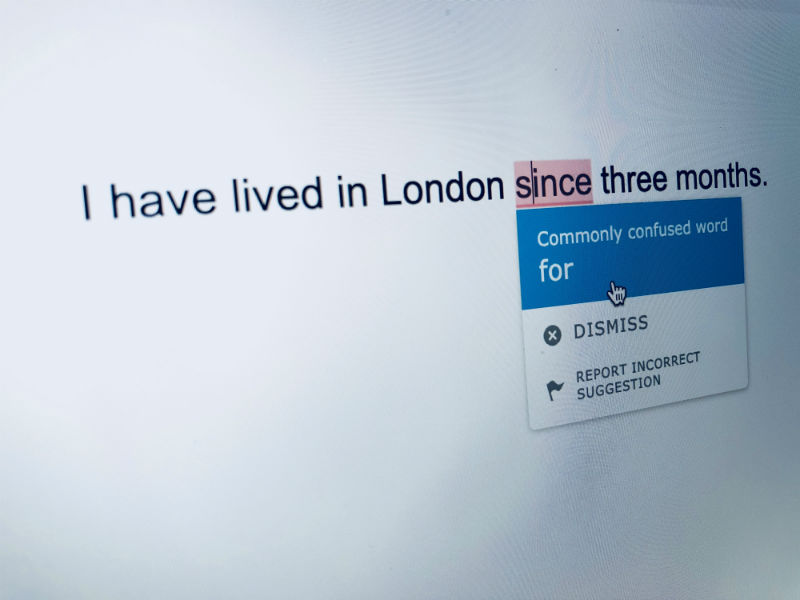Analysis: how to actually use Present Perfect in English
- Transfer
- Tutorial

Of all the times used in the English language, it is Present perfect that is often one of the most difficult for non-speakers to understand. Analogs of this time exist in many languages, but there are subtle differences in use. As a result, the English version of present perfect is the source of many errors.
The Textly service team published a post on their blog that looked at common mistakes when using the "perfect". I have prepared an adapted translation of this useful material.
Note translator : to understand the material you need to have basic knowledge of tenses in English.
We connect the past with the present
Error - I am living in London since July / I am living in London for three months. *
True - I have lived / have been living in London since July or I have lived / have been living ** in London for three months.
Explanation
Present perfect should always be used to describe an action that began in the past and continues in the present. Typically, such descriptions use words such as since (“since”) or for (“throughout”) - they are needed to emphasize how long the period of time elapsed from the moment the action started to the current moment was.
* In this case of using present continuous, the phrase would sound so that you would only stay in London for three months.
** For the verbs live, work and study, present perfect simple and present perfect continuous can be used to express the same idea.
For and Since
Error - I have lived / have been living in London since three months.
True - I have lived / have been living in London since July or I have lived / have been living in London for three months.
Explanation
Since is used to describe the starting point of an action, for is used to express the time during which it lasted.
Description of certain moments in the past
Error - I have been to Italy last year.
Right - I went to Italy last year.
Explanation
Present perfect is never used in conjunction with a specific time in the past. As soon as you see a link to a specific moment in the past, this means that in this case only past simple can be used. However, present perfect can be used to express an action in the past that emphasizes some previously received impressions or to demonstrate the number of times an action has occurred.
For instance:
I have been to Italy (experience) or I have been to Italy three times (number of times)
Mentioning past actions with present implications
Error - Joe changed jobs.
True - Joe has changed jobs (current consequence - he has a new job).
Explanation
Using the past simple time in the examples above reproduces an action that has no effect at the moment - and this is clearly not what the information is voiced for. Also, you never need to use present perfect to indicate the elapsed time, for this past simple is more suitable.
For instance:
Joe changed jobs last week.
Using present perfect simple and present perfect continuous
Error - It has rained.
True - It has been raining.
Explanation
Why would anyone talk about something like this? The answer is simple - when this person wants to emphasize the consequences, in this case - that the earth around is wet. Using present perfect simple focuses on the action, not its consequences.
In addition, it is worth using present perfect continuous if you want to emphasize the period of time that the action lasted, or in order to emphasize the fact that the action has not yet ended.
For instance:
I have been waiting for ages or I have been watching a movie (i.e. the film has not finished yet. If you need to say that you watched the film to the end, I have watched a movie would be more correct).
Already and just
Error - I have seen it yet.
True - I have already seen it.
Explanation
Yet is only used in negative or interrogative sentences. Already can be used in interrogative sentences (although it would be preferable to be yet), but more often it is included in affirmative sentences.
